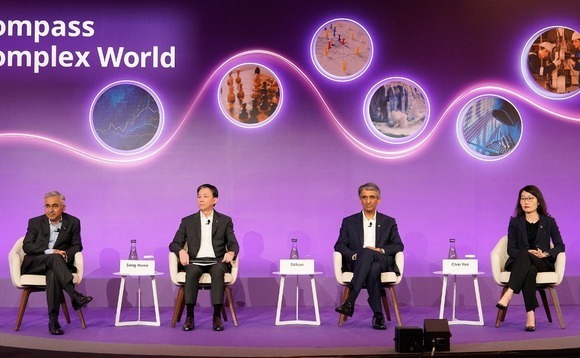
Valuation adjustments hit Temasek's returns

Singapore’s Temasek Holdings flagged the abrupt reversal of a two-year ramp-up in valuation gains on its global direct investments across technology, healthcare, and payments on posting its worst annual return since 2016.
The investor recorded a loss of 5.07% for the 12 months ended March 2023 as net portfolio value shrank to SGD 382bn (USD 285bn) from SGD 403bn a year earlier. It continues a period of recent volatility. Following a retraction in 2020, Temasek bounced back sharply in the subsequent two years, delivering a one-year shareholder return of 5.81% in 2022 as the portfolio reached a record high.
Temasek CEO Dilhan Pillay suggested the volatility may continue, highlighting how sticky inflation and tighter monetary conditions have contributed to significantly higher interest rates.
"The investment climate has become much more complex than what we have encountered since the global financial crisis," Pillay said, referencing challenges presented by rising geopolitical tensions, decoupling risk, the emergence of potentially protectionist policies, and costs associated with energy security and energy transition. They "portend lower global growth and lower real returns," he added.
Relatively muted investment activity reflected the sense of uncertainty, the annual review showed. Temasek put SGD 31bn to work in the 12 months ended March 2023, down from SGD 61bn a year earlier and SGD 49bn in the year before that. Divestments also narrowed to SGD 27bn from SGD 37bn and SGD 39bn.
Portfolio exposure to unlisted assets, which rose sharply from 45% to 52% in 2022, held steady at 53%. Of the SGD 202bn unlisted portfolio, 17% was in funds, 16% was in asset management businesses and partnership investments, 31% was in large Singapore-based companies like Mapletree and SP Group, 29% was in other global direct investments, and 7% was in early-stage, future-centric assets.
Asset management exposure includes Seviora Holdings – the umbrella entity for Azalea Investment Management, InnoVen Capital, Fullerton Fund Management, and Seatown Holdings International – as well as Vertex Holdings, 65 Equity Partners, Decarbonisation Partners, and ABC Impact. Partnerships cover tie-ups with the likes of LeapFrog Investments and Emerald Technology Ventures.
Unlisted assets are valued at book value less impairment; any uplift is only recognised on listing or sale. Valuing the unlisted portfolio on a mark-to-market basis would lead to SGD 18bn of uplift, Temasek said. It added that the unlisted portfolio has generated annual returns of more than 10% over the past decade, exceeding returns from listed assets.
Early-stage investments account for 6% of Temasek's overall portfolio. Half of the early-stage exposure is through direct deals, 38% through venture capital funds, and 12% through asset management businesses and partnership investments. On a geographic basis, the early-stage portfolio is 42% the Americas, 25% China, 11% Singapore, and 7% Asia ex-China and Singapore.
On an overall basis, Singapore accounts for 28% of Temasek's assets, followed by China at 22%, the Americas at 21%, and Asia ex-China and Singapore at 13%. Transportation and industrials – which includes energy and resources – overtook financial services to become the largest sector, with 23% and 21% respectively. Technology, media, and technology exposure dropped from 18% to 17%.
Black marks on the technology portfolio include collapsed cryptocurrency exchange FTX, which received USD 275m from Temasek. An internal investigation launched following the write-down found no evidence of misconduct. However, the investment team and senior management took collective responsibility, and their compensation was reduced.
"With FTX, as alleged by prosecutors and as admitted by key executives at FTX and its affiliates, there was fraudulent conduct intentionally hidden from investors, including Temasek. Nevertheless, we are disappointed with the outcome of our investment, and the negative impact on our reputation," the annual review states.
The review also emphasised Temasek's commitment to long-term investment, unveiling a 10-year roadmap to guide strategic planning. As part of this, it identified six key themes: persistent inflation, restrictive macro policy, and lower growth; geopolitical events and decoupling; foreign investment regimes; sustainability and climate change; cyber risks; and industry 4.0 and workforce 4.0.
Latest News
Asian GPs slow implementation of ESG policies - survey
Asia-based private equity firms are assigning more dedicated resources to environment, social, and governance (ESG) programmes, but policy changes have slowed in the past 12 months, in part due to concerns raised internally and by LPs, according to a...
Singapore fintech start-up LXA gets $10m seed round
New Enterprise Associates (NEA) has led a USD 10m seed round for Singapore’s LXA, a financial technology start-up launched by a former Asia senior executive at The Blackstone Group.
India's InCred announces $60m round, claims unicorn status
Indian non-bank lender InCred Financial Services said it has received INR 5bn (USD 60m) at a valuation of at least USD 1bn from unnamed investors including “a global private equity fund.”
Insight leads $50m round for Australia's Roller
Insight Partners has led a USD 50m round for Australia’s Roller, a venue management software provider specializing in family fun parks.







